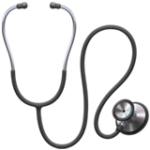 Policy Brief + Recommendations
Policy Brief + Recommendations
Habitable’s policy brief, “Buildings’ Hidden Plastic Problem,” reveals stunning statistics about current and projected plastic use in buildings and includes recommendations to reduce plastic pollution—greenhouse gases (GHGs), microplastics, and toxic chemicals—throughout product life cycles.
This policy brief presents highlights from the significant body of science indicating that plastic building materials are contributing to serious health and environmental harms over their life cycle, from fossil fuel extraction to production, use, and disposal. These impacts fall disproportionately on susceptible and marginalized people, including women, children, Indigenous people, low-income communities, and people of color. The brief includes examples of solutions and offers recommendations to strengthen policies that will reduce plastic use in the built environment and associated life cycle harms.
Endorsing organizations:
- Alliance of Nurses for Healthy Environments
- Alaska Community Action on Toxics
- American Sustainable Business Network
- Between the Waters
- Beyond Plastics
- Cannon Design
- Changing Materials/Changing Streams
- Children’s Environmental Health Network
- Cooper Carry
- Defend Our Health
- Earthjustice
- Ecology Center
- Green Science Policy Inst
- Healthy Babies Bright Futures
- Just Zero
- Little Things Matter
- Moms Clean Air Force
- MSR Design
- Planetary Health Alliance
- Plastic Free Future
- Plastic Pollution Coalition
- Safer States
- Science and Environmental Health Network
- Toxic Free Future
Interested in endorsing these policy recommendations? Contact us.
French—lire en français
Spanish—leer en español
English—read in english

This fact sheet highlights the building and construction sector’s significant contributions to global plastic pollution.
Using case studies of flooring products specified in the K-12, healthcare, and affordable housing sectors, the fact sheet introduces opportunities for building practitioners to reduce the plastic footprint of their buildings and emphasizes the impact that one building can make by specifying low/no-plastic products.
PFAS Central is a comprehensive resource providing the latest curated information on PFAS, encompassing press coverage, peer-reviewed scientific articles, meeting updates, job listings, and consumer guides.
This platform is a collaborative effort between the Green Science Policy Institute and the Social Science Environmental Health Research Institute (SSEHRI) at Northeastern University. The Green Science Policy Institute aims to foster responsible chemical use to safeguard human and ecological health by uniting scientists, regulators, businesses, and public interest groups. SSEHRI focuses on social science research, education, and policy work related to environmental health, with a special emphasis on PFAS through its dedicated project.

This episode featured Teresa McGrath, the Chief Research Officer for Habitable.
She digs into the environmental implications of paint components and offers scientific insights on sustainable alternatives. Some of her suggestions are even trending—popular wall treatments such as Limewash and Roman clay are healthier alternatives.


Discover the urgent need to protect children’s developing brains from the harmful effects of plastics and toxic chemicals with this recent report, “Protecting the Developing Brains of Children from the Harmful Effects of Plastics and Toxic Chemicals in Plastics.”
This briefing paper, prepared by experts from Project TENDR, summarizes mounting scientific evidence linking plastic exposure to neurodevelopmental disabilities and cognitive deficits in children. It also provides essential policy recommendations to strengthen the new global treaty on plastics pollution. Download the report or watch the webinar to learn more about how we can address the toxicity and proliferation of plastics and petrochemicals.

Explore the critical role of value engineering (VE) in plumbing systems with this comprehensive report, “Value Engineering in Plumbing Systems.” Discover how effective VE can optimize costs without compromising essential functions, while understanding the potential pitfalls through real-world examples like the costly Baltimore hotel case.
Learn from the insights of industry professionals who emphasize the importance of balancing cost with durability, safety, and sustainability. This report provides essential guidance for architects, engineers, and contractors on making informed decisions to maintain plumbing system integrity and avoid costly mistakes. Download the report today to enhance your approach to VE in plumbing projects.

Habitable’s report, “Advancing Health and Equity through Better Building Products,” reveals the current state of building materials used, with nearly 70% of typical products in the categories analyzed containing or relying on the most hazardous chemicals.
The results, based on data for Minnesota affordable housing, are consistent with products used in other building types and geographic regions. The report highlights examples of leaders within and beyond Minnesota’s built environment who are already taking action toward safer material choices. It also provides guidance on how the real estate industry can begin working toward a healthier future by “stepping up from red-ranked products”—the most polluting and harmful throughout their life cycle based on Habitable’s research and Informed™ product guidance.
A path towards planetary health is more urgently needed now than ever, but our current materials economy creates rampant pollution, climate change, and growing inequity. Shifting from harmful practices to healthful solutions will require cross-sector partnerships, holistic thinking, and exciting new approaches that reduce the burden of industry on people and our planet.
Watch Habitable’s special Earth Month webinar featuring leading global voices, including:
- Dr. Bethanie Carney-Almroth
- Dr. Veena Singla
- Martha Lewis
Moderated by Gina Ciganik, CEO of Habitable

In this opinion piece, architect Martha Lewis addresses the ecological polycrisis of the twenty-first century and its impact on the architectural sector, emphasizing the urgent need for architects to reassess material choices and construction methodologies to mitigate environmental consequences.

Tests by Consumer Reports found bisphenols and phthalates, chemicals used in plastic, in a wide range of packaged foods, raising concerns due to their potential health effects, including disruptions to the endocrine system and associated health issues.

 Pollution
Pollution Health
Health Equity
Equity